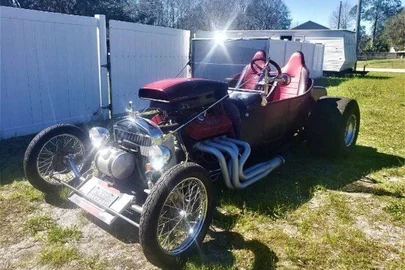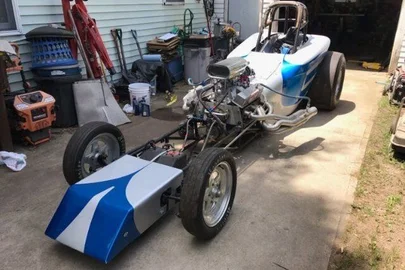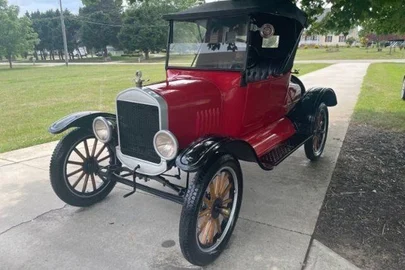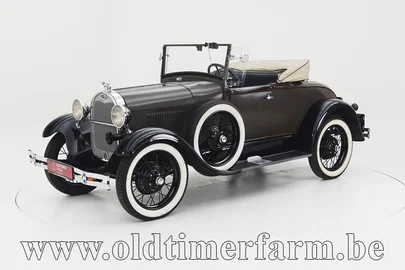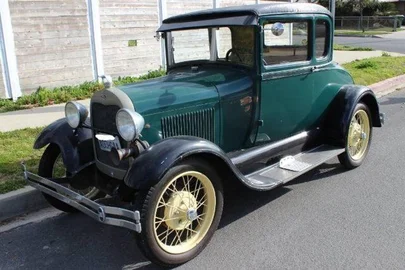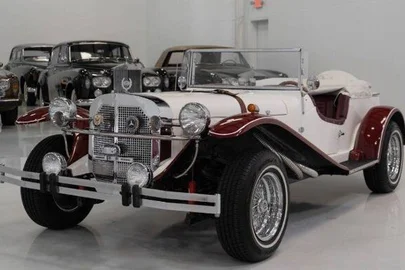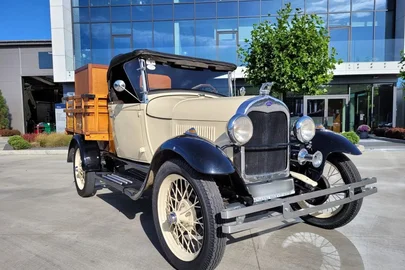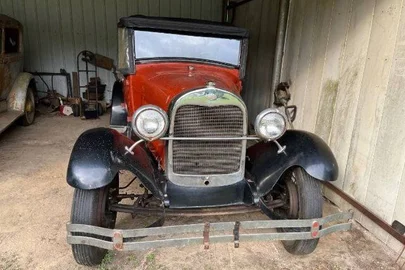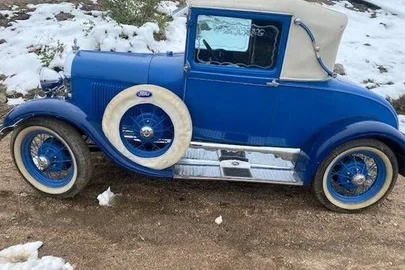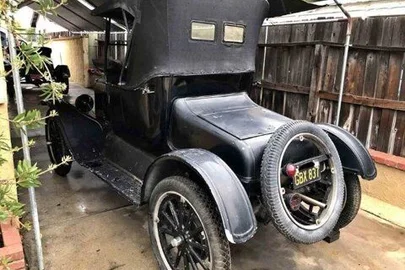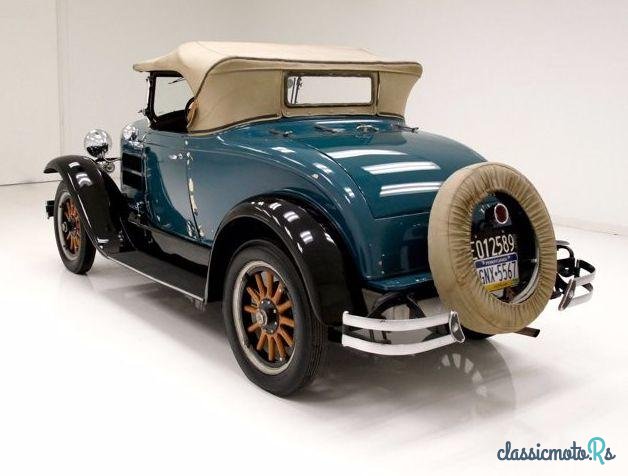
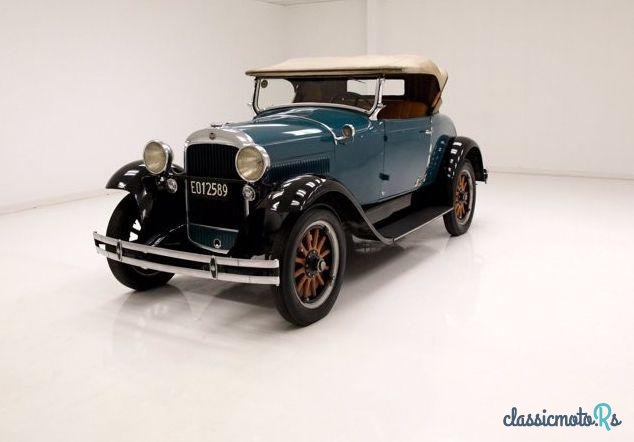
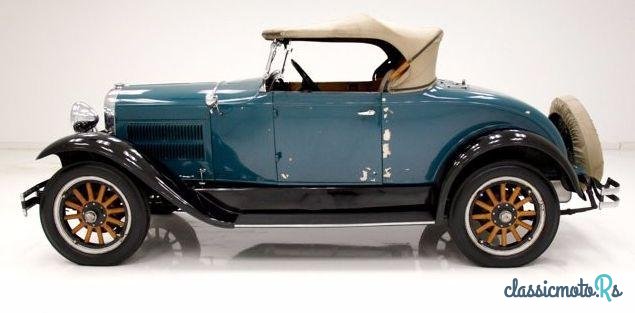
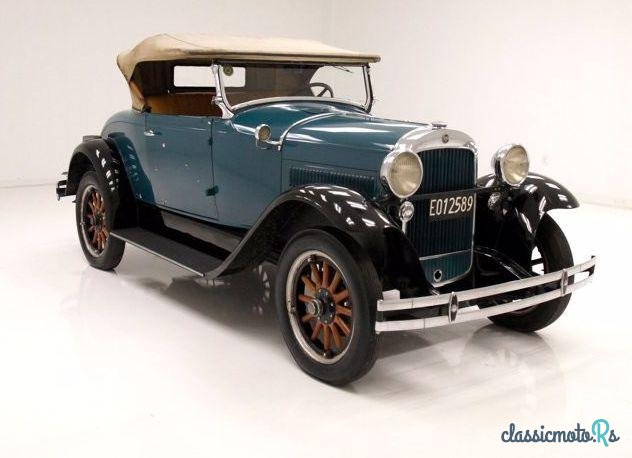
4 фото
1928' Essex Super Six
Пожаловаться!Оценить!Запомнить это
$20,000Опубликовано 14 января 2021ID: BGyrDt
Истекло
5 лет, 1 месяц назад
5 лет, 1 месяц назад
Information from the owner
Возраст: 93 года
Трансмиссия: Ручная
Комментарии продавца про 1928' Essex Super Six
1928 Essex Super Six Roadster Essex cars were designed to be moderately priced cars which would be affordable to the average family. Proving durable, their capabilities were checked upon and confirmed by AAA and the United States Post Office. In 1919, an Essex completed a 50-hour, 3,037.4 miles endurance test in Cincinnati, Ohio, at an average speed of 60.75 miles per hour. The early Essex cars also captured many hill climb records. In a special Essex race car, Glen Shultz won the 1923 Pikes Peak Hill Climb. During its production run, the Essex was considered a small car and was affordably priced. The Essex is generally credited with starting a trend away from open touring cars design toward enclosed passenger compartments. This consignment made in Detroit sports 4-wheel mechanical drum brakes, an innovation for its day. It will need some TLC on the exterior print, with surfaces currently showing some peeling of the respray. The interior is a beauty, and it is mechanically sound with a restored engine bay and engine. Exterior A blue green covers this car and is an older respray. It is showing some wear at spots with some peeling and rub off of the respray throughout. Gaps are nicely minded and there is no rust in sight. Black curved fenders meet up in the center of the car and form a running board for easy access and egress from this car. Typical of the late 1920s a chromed radiator surround is flanked by a single headlight on either side with a dual bar bumper below. A long hood in rolled form stretches from the radiator to the firewall and eventually the passenger compartment. On top is a tan canvas top for the convertible. On the back is a rumble seat which sits above a rear mounted spare tire, and a dual bar split shiny bumper on back. 20 inch nicely refinished wood spoked wheels are on all 4 corners as well as a spare which is sans spokes. Interior Light butterscotch leather drapes the door panels and single interior wide tuck and roll bench. The leather is beautifully aged with some natural creases eased on over time. Door panels are also in the butterscotch and have a snazzy pouch for extra storage. In front is a restored dash with a swooping wood oak lath trim piece, over some blue/green painted to match the exterior dash front. In the center is a polished squared off corners oval instrument cluster with squared off corner white faced gauges within it. This sits within a black painted dash. Fronting the dash is the original bakelite steering wheel, also in back. Butterscotch carpet is covering the floors and is nice and clean. Drivetrain An upward lift of the cowl in front and we see a restored 153.2ci inline 6-cylinder engine. There is a 1-barrel carburetor on top and a 3-speed manual transmission of unknown origin on the back. As for the rear axle, you are looking at a 5.40 gear ratio. All is looking clean and slightly aged under this hood. Undercarriage Fully restored nice rust free black mechanical parts, suspension and drivetrain is seen along with some stained wood between the frame rails. Rockers and body hangers are solid and rust free. Leaf spring suspension is all around and 4 wheel mechanical drum brakes are noted on all 4 corners. Looking good overall underneath. Drive-Ability A quick starter, and fine runner, provided a nice cruise, and a pleasurable Sunday drive speed test ride. All is functioning well for this test drive. Save for the exterior peeling paint, a very nice example that has benefited from a previous earlier restoration. Great interior, nice canvas convertible top, and solid mechanicals are slightly distracted with the peeling paint, but a minor inconvenience when you consider this car is all good on every other front. Hudson eventually took over, and the Terraplane would replace this Super Six Roadster in 1932. For now, enjoy the limelight as the Essex Super 6 from 1928.
